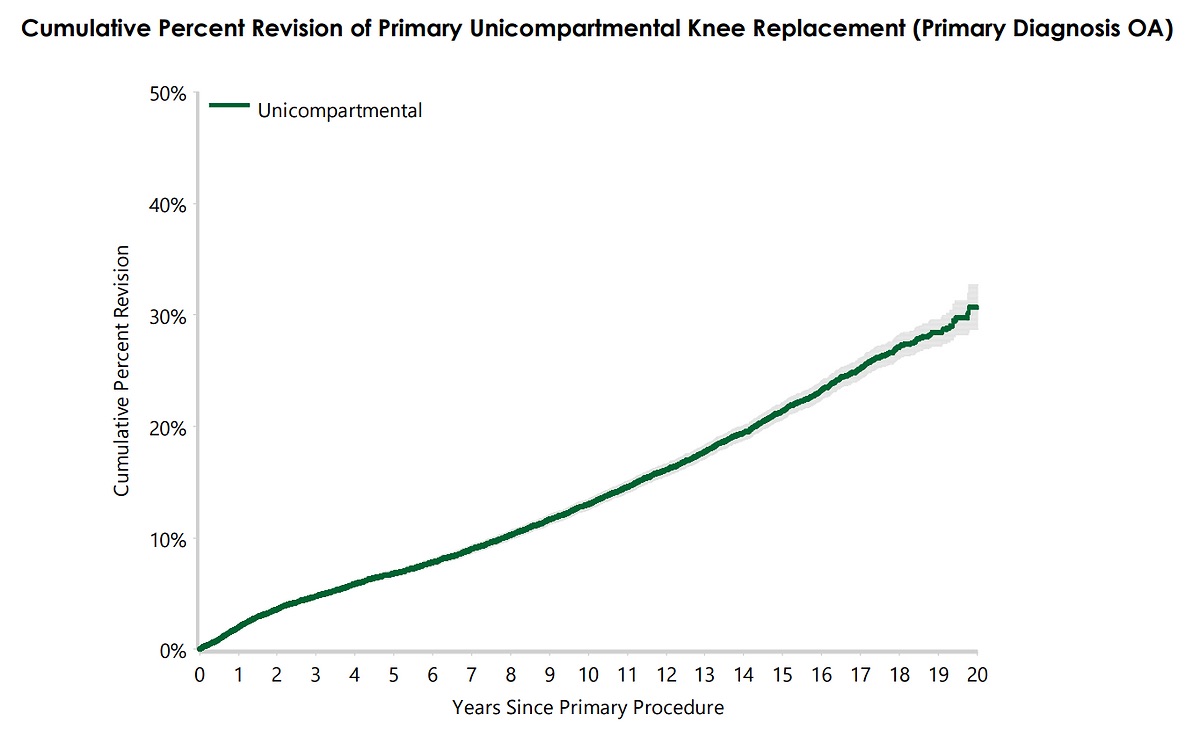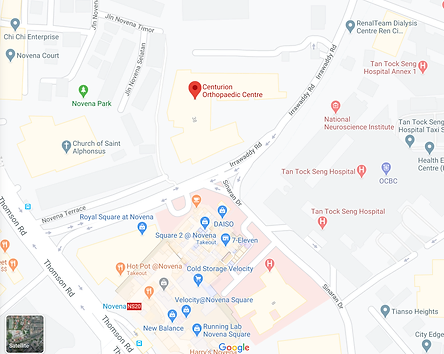How long does a knee replacement last?

How long does a knee replacement last?
Modern-day implants are capable of lasting very long. A total knee replacement surgery done well can easily last 25 to 30 years, or more. Many factors affect how long the implants last, such as the patient’s knee condition, surgical technique, patient activity after surgery, but it is true that in the majority of cases, a knee replacement surgery lasts the patient their whole lives.
Cumulative Percent Revision of Primary Total Knee Replacement by Primary Diagnosis

Source: Australian Orthopaedic Association Joint Registry Annual Report 2021
The graph above shows the risk of a person requiring a second surgery (known as a revision surgery), in relation to the number of years after the initial Total Knee Replacement (TKR). At 18-20 years after surgery, the risk is 8 to 10%, depending on the initial diagnosis of the knee condition. This means that 90% – 92% of TKR patients will still have their implants functioning well after 18-20 years. This is an encouraging figure and generally bodes well for the vast majority of patients undergoing Total Knee Replacements.

The graph above shows the risk of a person requiring a revision surgery, in relation to the number of years after the initial Unicondylar Knee Replacement (UKR). A UKR is also known as a Partial Knee Replacement, usually of either the medial or lateral compartment of the knee. At 20 years after surgery, the risk is about 30%. This means that 70% of UKR patients will still have their implants functioning well after 20 years.
A Total Knee Replacement (TKR) versus a Unicondylar Knee Replacement (UKR)
It is true that a TKR can last longer than a UKR. However, there are some situations where a UKR is more suitable for the patient. Generally, a UKR may be more suitable for the young patient with arthritis (<50 years old), or the elderly patient with arthritis (>75 years old), and where the arthritis is confined mainly to just one compartment in the knee. A UKR allows the patient to retain more movement and activity of the knee (thus being more suitable for the young arthritic), and is also less invasive with less operative risk as compared to a TKR (thus being more suitable for the elderly arthritic). Please refer to this page for more information on the pros and cons of a TKR versus a UKR.

Centurion Orthopaedic Centre
38 Irrawaddy Road
Mt Elizabeth Novena Hospital Specialist Centre #07-40
Singapore 329563

Services
Medisave / Insurances
Treatments
Ankle Sprain & Treatment
Cartilage Repair Treatment
Bone Fracture Treatment
Alternatives to Knee Replacement
Knee Replacement Surgery
ACL Reconstruction Surgery
Knee Cartilage/Meniscus Tear Injury
Heel Spur Treatment
Hip Replacement Surgery
Hip Scope Surgery
Shoulder Scope Surgery
Ankle Ligament Surgery
Spinal Injection Therapy
Steroid Injection
Patient Resources
© 2026 Centurion Orthopaedic Centre. All rights reserved.